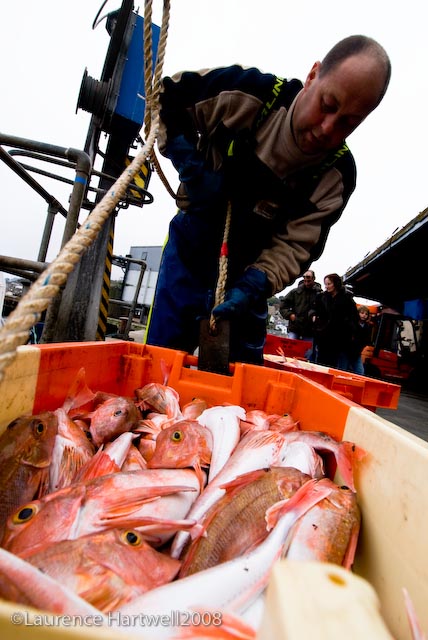 |
| Red mullet from an inshore boat, caught off the Lizard. |
The northeast Atlantic has been described as the "cauldron of climate change", with warming occurring at a rate four times the global average over the past 30 years. Dr Simpson, a researcher in the University's School of Biological Sciences, explained: "While a 1.3° Celsius change in mean annual temperature in the North Sea over the past three decades may sound trivial, temperature has a strong influence on egg maturation rates, growth and survival of fish larvae, and impacts on the planktonic communities that underpin the food webs that sustain commercial fisheries.
"We see many more southerly warm-water species faring well on the European shelf than northerly cold-adapted species. This means more small-bodied, faster growing species with shorter generation times, and potentially more diversity."
Indeed, the data show that fish in European waters have undergone profound community-level changes that are related to dramatic warming trends for the region. The vast majority – a whopping 72 percent – of common fish species have already shown a change in abundance that relates to the rising sea temperatures.
 |
| Red gurnards were sold by trawlermen as crab bait not so long ago, these days there is a market for them as eating habits change in the UK. |
Simpson added: "We may see a further decline in cold-adapted species, many of which were the staple for our grandparents. The flip side is a likely increase in species that for the UK may seem relatively exotic now, such as red mullet and John Dory. Over time, with effective management and an appropriate response in consumer demand, European seas have the potential to yield productive and sustainable fisheries into the future."
This will be good news for fishmongers like these guys in London who just can't get enough Cornish red mullet!